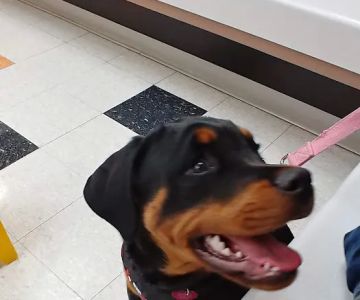What Should I Do If My Dog Gets Into Rat Poison? Quick Steps for Immediate Action
- Understanding Rat Poison and Its Dangers
- Signs Your Dog Has Ingested Rat Poison
- Immediate Actions to Take
- How Veterinarians Can Help
Understanding Rat Poison and Its Dangers
Rat poison is a common household item used to control rodent populations, but it poses significant risks to pets, especially dogs. Many types of rat poison work by causing internal bleeding or damage to vital organs, making it crucial for pet owners to take swift action if their dog gets into rat poison. The severity of poisoning depends on the type of rat poison, the amount ingested, and the size of the dog.
Signs Your Dog Has Ingested Rat Poison
Recognizing the symptoms of rat poison ingestion is key to ensuring your dog receives the right treatment. While symptoms can vary depending on the poison, some common signs include:
- Unusual bleeding: This may include bleeding gums, nosebleeds, or blood in the stool or urine.
- Weakness and lethargy: If your dog becomes unusually tired or weak, it could indicate internal bleeding or organ damage.
- Difficulty breathing: Some types of rat poison affect the dog’s ability to breathe normally, causing panting or labored breathing.
- Vomiting or drooling: Ingestion of the poison often leads to digestive upset, causing vomiting or excessive drooling.
- Seizures or tremors: Severe poisoning can cause tremors or seizures, indicating serious neurological damage.
Immediate Actions to Take
If you suspect your dog has ingested rat poison, immediate action is critical. Here's what to do:
- Stay calm: Panic can make the situation worse. Take deep breaths and assess the situation calmly.
- Contact your veterinarian or emergency pet poison hotline: Call your veterinarian or an emergency pet poison hotline immediately. They will guide you on the next steps based on the type of rat poison involved.
- Induce vomiting (only if advised): In some cases, inducing vomiting may be recommended, but only do so if instructed by a professional. Never attempt to make your dog vomit without consulting a veterinarian.
- Prevent further ingestion: If there’s any remaining rat poison or access to it, secure it immediately to prevent further exposure.
- Monitor for symptoms: While waiting for veterinary help, keep an eye on your dog for any worsening symptoms and provide as much information as possible to the vet.
How Veterinarians Can Help
If your dog has ingested rat poison, a veterinarian’s expertise is essential. They may take the following steps to treat your dog:
- Activated charcoal: If your dog is brought in soon after ingestion, a vet may administer activated charcoal to limit further absorption of the poison.
- Intravenous fluids: IV fluids may be provided to flush toxins from the body and support organ function.
- Antidotes: In cases of poisoning with specific rat poisons, such as those containing anticoagulants, a veterinarian may administer vitamin K or other antidotes to reverse the effects.
- Blood transfusions: In severe cases of internal bleeding, blood transfusions may be necessary to stabilize the dog.
If you find yourself in a situation where your dog has ingested rat poison, time is of the essence. The quicker you act, the better the chances of a positive outcome. Make sure you have access to veterinary care as soon as possible, and if needed, professional guidance on managing your pet’s health in emergencies. For more information on preventing accidents and understanding the risks of common household items like rat poison, visit Hidden Brook Veterinary for expert advice and services.










